We joined Dorothee from The Conservation Volunteers on a Bird ID walk recently to hear about how the National Cycle Network and Sustrans Scotland's Love Your Network grant have helped them in supporting recent arrivals to the local community.
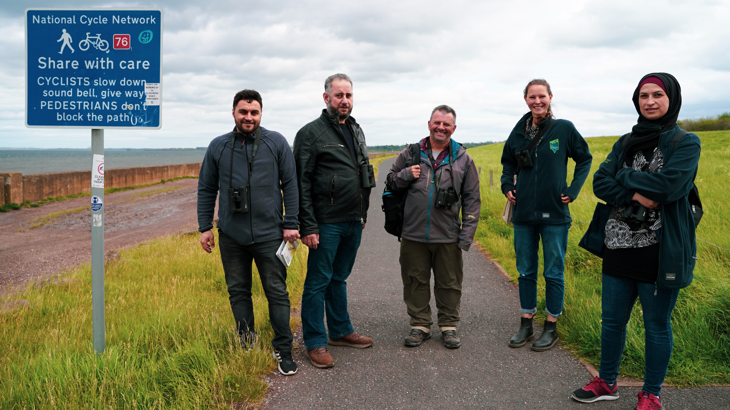
Staff from Sustrans, the Conservation Volunteers and refugees out on a Bird ID walk at Musselburgh Lagoons.
Building Roots in the community since 2019
The Conservation Volunteers initiated the Building Roots project in 2019.
The project was set up to support Arabic-speaking refugees across the South East of Scotland, and is funded through the National Lottery Heritage Fund.
This support is through activities that offer nature engagements with a specific focus on the Scottish outdoors, wildlife and heritage.
The programme seeks to promote positive mental and physical health and well-being, tackle social isolation, improve language skills, and provide a welcoming space that brings together Arabic and Scottish culture.
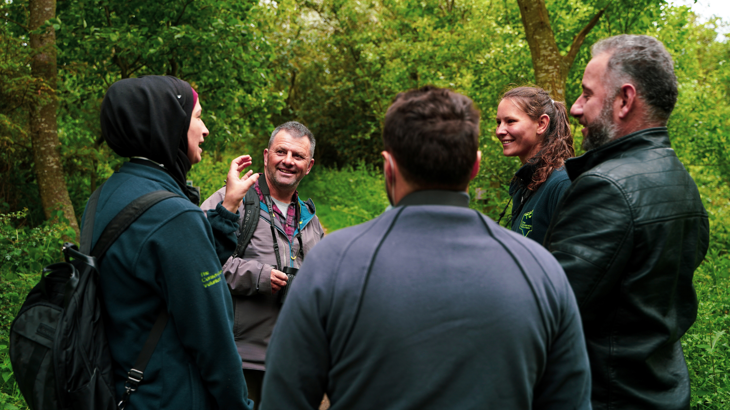
The Building Roots programme gives Arabic-speaking refugees a chance to get active, look after their mental wellbeing and get involved in their local community.
Letting the participants lead the way
Our participants have guided the project's development.
For example, we established an Older Women's group, meeting weekly at the Royal Botanic Gardens Edinburgh.
We have also started a regular wood working group in partnership with the Edinburgh Tool Library.
Participants in these groups have expressed interest in birds and learning occasions, and we have taken them on nature walks in different locations.
Inspired by the Love Your Network programme
We decided to apply for our Bird ID training through the Sustrans Love Your Network grant programme.
The programme supports communities in making traffic-free National Cycle Network in Scotland more attractive and enjoyable for everyone.
On our recent walk, we took two Syrian men who are particularly interested in birds to Musselburgh Lagoons in the Levenhall Links Nature Reserve.
This trip was facilitated by Scott Paterson of Kinross Ecology.
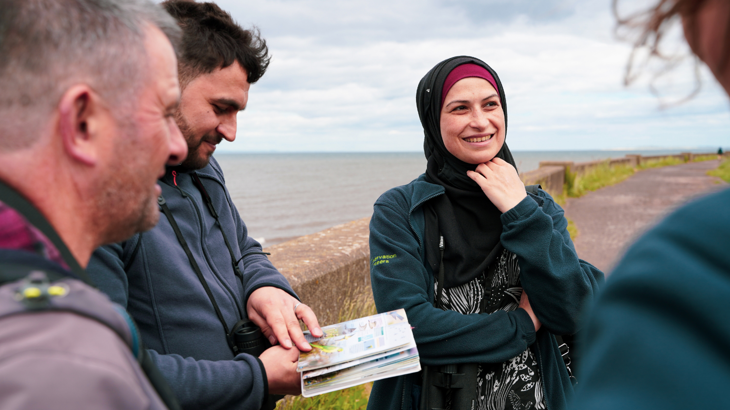
The Conservation Volunteers are highlighting the importance of providing refugees with ways to connect with nature and their local community.
National Cycle Network routes are great places to engage with nature
Activities like this walk support refugees to get out of the house and take part in things that they can enjoy together.
The trips help refugees to feel better from walking in the fresh air and engaging with the nature around them.
It's great for them to feel part of their local community, get to know a new place in their area and practice some English.
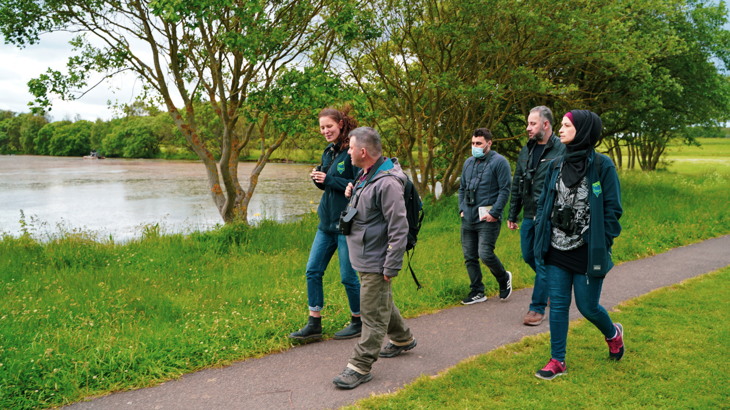
National Cycle Network route 76 runs through the Musselburgh Lagoons Birdwatching Site and is an excellent place to spot a wide variety of birds.
Feeling safe to walk, wheel and cycle is crucial
Access to traffic-free paths is so essential, and this is a lovely opportunity to familiarise the refugee community with the National Cycle Network.
Feeling safe mainly to walk, but also to cycle, is a very important factor for determining which places are accessible for the community.
This is especially true for women and families with young children and buggies, wheelchair users, and older participants with walking aids.
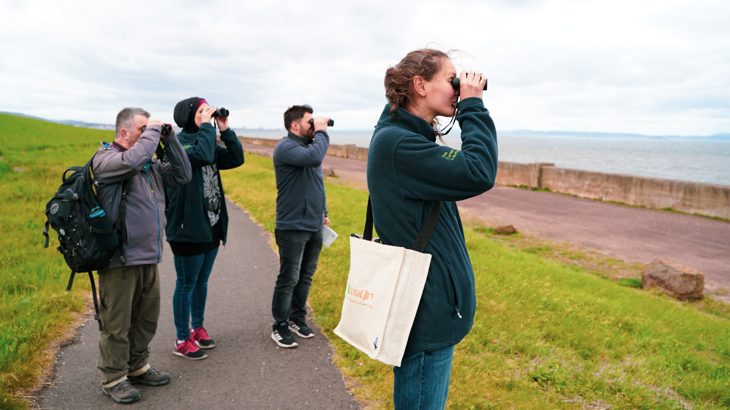
Participants spent their Bird ID session learning about a unique array of birds native to the area.
Inspiring future discovery along the National Cycle Network in Scotland
We have in the past organised essential cycling training with some young refugees in Stirling and Clackmannanshire with Recyke a Bike (Bridge of Allan).
This has helped to inspire people to cycle and feel confident to use bikes on safe routes in their community.
I would love to connect my participants to more of these opportunities to learn how and where to cycle and find access to bikes and routes.
This would also help inspire them to use the National Cycle Network routes closest to their homes for walks.





